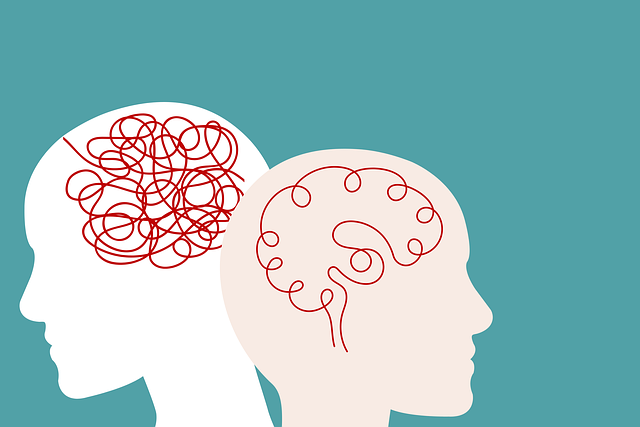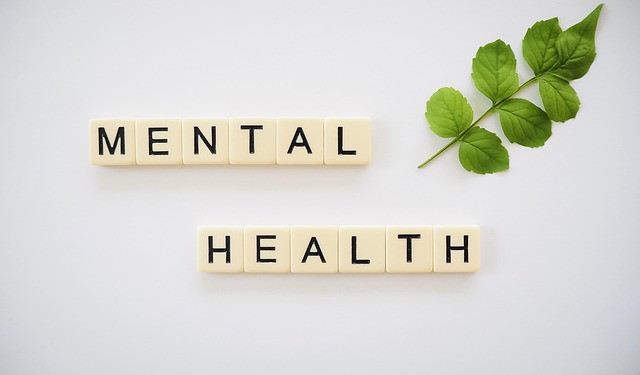In today's fast-paced world, mental wellness is often overlooked, especially in blended families. Littleton Blended Families Therapy highlights unique challenges arising from combining households, emphasizing the importance of healthy self-care practices like mental wellness journaling. This practice guides individuals to process emotions, experiences, and thoughts, leading to improved mental health, open communication, and stability. Journaling facilitates self-reflection, personal growth, depression prevention, confidence boost, and stress management. Littleton Blended Families Therapy actively promotes journaling as a routine for emotional resilience and stronger familial bonds. By setting aside consistent time with personalized prompts, individuals can enhance self-care, cultivate compassion, and track progress in navigating mental health journeys.
Mental wellness journaling is a powerful tool for blended families seeking balance. In today’s fast-paced world, prioritizing emotional health is essential. This article guides you through understanding mental wellness and its unique dynamics in blended households, highlighting the therapeutic benefits of journaling. We’ll walk you through setting up your personal practice, incorporating effective techniques, and tracking progress with actionable steps from Littleton Blended Families Therapy.
- Understanding Mental Wellness and Its Impact on Blended Families
- The Power of Journaling as a Therapy Tool
- Setting Up Your Personalized Journaling Practice
- Incorporating Key Techniques for Effective Journaling
- Tracking Progress and Celebrating Growth with Littleton Blended Families Therapy
Understanding Mental Wellness and Its Impact on Blended Families

In today’s fast-paced world, mental wellness is a crucial aspect often overlooked, especially within blended families. Littleton blended families therapy highlights the unique challenges and dynamics that arise when combining households, which can significantly impact overall well-being. Blended families often navigate complex emotional landscapes, including step-parents, half-siblings, and adjusting to new routines, all of which contribute to potential stress and burnout prevention concerns.
Understanding these dynamics is essential for fostering healthy self-care practices. Mental wellness journaling exercise guidance can serve as a powerful tool for family members to process their emotions, experiences, and thoughts. By dedicating time to reflect and document their feelings, individuals within blended families can begin to unravel the complexities of their lives, leading to improved mental health outcomes. This practice encourages open communication, fosters understanding among family members, and promotes a sense of stability in navigating life’s twists and turns.
The Power of Journaling as a Therapy Tool

Journaling has long been recognized as a powerful tool for self-reflection and personal growth, offering a safe space for individuals to explore their thoughts and emotions. For those seeking to enhance mental wellness, particularly within the context of blended families, it can be an incredibly effective practice. By committing time each day or week to write down experiences, feelings, and insights, individuals can gain valuable perspectives on their lives.
This simple yet profound act allows one to process complex emotions, reflect on personal values, and cultivate positive thinking. Studies have shown that journaling can be a powerful mechanism for depression prevention and boosting confidence, providing an outlet for processing stress, anxiety, and even trauma. At Littleton Blended Families Therapy, we encourage clients to incorporate this practice into their self-care routines as a way to foster emotional resilience and strengthen connections within their families.
Setting Up Your Personalized Journaling Practice

Setting up a personalized journaling practice is an essential step towards prioritizing your mental wellness, especially for those navigating life’s challenges, such as blended families. At Littleton Blended Families Therapy, we understand that creating a safe and consistent space for reflection can significantly impact one’s overall well-being. So, how do you begin? Start by choosing a journal that feels right for you—it could be a beautiful hardback notebook or a digital document on your preferred device. Consistency is key; set aside dedicated time each day or week to write. Make it a routine, perhaps before bed or during a quiet morning, to reflect and explore your thoughts and emotions.
Incorporate prompts if you find yourself stuck. Simple questions like “What made me happy today?” or “How did I handle a challenging situation?” can guide your journaling process. You might also include exercises for mood management or social skills training, especially if these are areas of focus in your therapy journey. Over time, this practice will become a powerful tool for crisis intervention guidance and self-discovery.
Incorporating Key Techniques for Effective Journaling

Incorporating key techniques can elevate your mental wellness journaling exercise, making it a powerful tool for self-care and growth. Start by setting a consistent routine; dedicating just 15 minutes daily can significantly impact your well-being. Use prompts to guide your reflections, such as “What am I grateful for today?” or “How did I handle a challenging situation?” These questions encourage mindfulness and positive affirmation.
At Littleton Blended Families Therapy, we emphasize the importance of self-compassion. Incorporate practices like acknowledging your feelings without judgment and treating yourself with kindness. Journaling provides an opportunity to develop crisis intervention guidance by identifying triggers and exploring coping strategies. Additionally, integrating compassion cultivation practices can foster a deeper sense of connection with yourself, leading to improved mental health and overall well-being.
Tracking Progress and Celebrating Growth with Littleton Blended Families Therapy

Tracking progress is a vital component of any wellness journey, and mental health journaling provides a powerful tool for reflection and growth. For blended families navigating complex dynamics, Littleton Blended Families Therapy offers a unique approach to this process. By integrating journaling exercises into therapy sessions, they empower individuals and couples to document their emotional journeys, identify patterns, and celebrate small victories.
This therapeutic practice encourages clients to reflect on their mental health progress over time, much like Burnout Prevention Strategies for Healthcare Providers focus on self-care. Through regular journaling, families can identify triggers, develop coping mechanisms, and foster open communication. Mental Health Policy Analysis and Advocacy becomes more meaningful when individuals gain insights into their personal struggles, leading to increased self-advocacy and a sense of empowerment. Mental Health Awareness is enhanced as families share their experiences and support one another in understanding the nuances of their emotional growth.
Mental wellness journaling can be a transformative practice for individuals, especially those navigating complex family dynamics. By adopting personalized journaling techniques, as guided by professionals like Littleton Blended Families Therapy, blended families can foster open communication, process emotions effectively, and track progress towards healing and growth. This simple yet powerful tool empowers each member to understand their mental wellness journey uniquely, ultimately enriching the family’s overall well-being.










